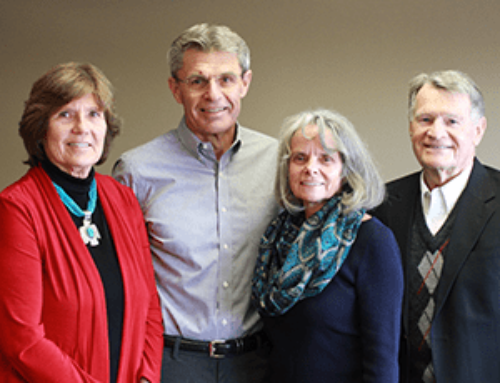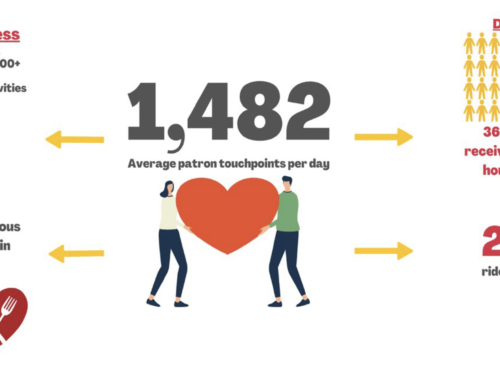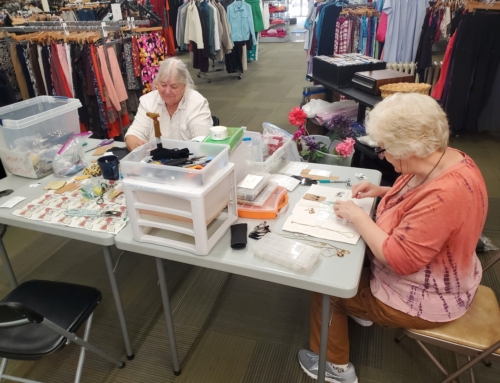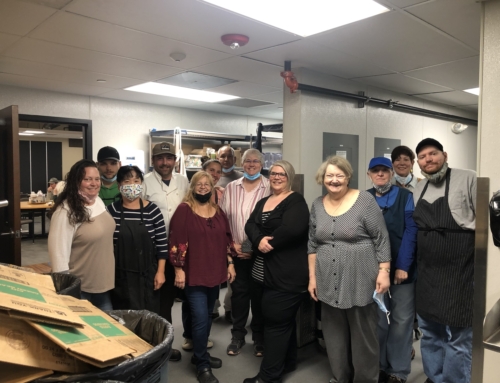As human beings, you, me, and everyone around us lives in a continuous cycle of taking in and processing data. Whether it is through the way you see, hear, feel, smell, or taste, your brain processes enormous amounts of data to allow you to safely navigate your world and support your well-being. However, when dementia sets in, a person’s brain is chemically and structurally altered. These changes can interfere with these sensory processes, causing potentially challenging situations as the person is struggling to make sense of their surroundings. And while it might seem confusing and frustrating to you, remember that what you’re seeing is the person’s best attempt to understand and meet their own needs under the circumstances, and with the abilities they are living with at that very moment. So, what can you do as a caregiver (or care partner, as we’d call you here at Positive Approach to Care®) do to help when a person’s sensory processing isn’t working as it used to? Here are a few tips to keep in mind:
Observe: The first and most important step is to observe. If you take the time to observe, you will often be able to discover the abilities a person living with dementia is actually working with at any given moment. If you can understand more fully what someone can do, instead of focusing on what they can no longer do, then you can find ways to support the person more effectively and in a way that makes sense for how and where they are in that moment. This begins with observation, not assumption about what you think is happening.
Pay Attention to Sensory Cues: Next, look for various sensory cues. All human beings are giving us clues and information about their ability through their actions or behavior with others and their environment. Take an inventory by honestly observing and respecting how the person living with dementia is relating to the world through their five senses. When you observe the person doing or not doing something, it will provide you with valuable information about the person and his/her abilities. You will see both what that person is getting from their environment and their body, as well as any unmet needs s/he is trying to address but isn’t able to on their own.
• Visual cues: Notice what a person is focused on. What can/do they see that might be different from what you are able to see? Visual cues are typically a human being’s first method and favorite way to take in informational data. Over time, dementia causes many changes in the brain’s occipital lobe, impacting a person’s visual field, object recognition, figure-ground awareness, and depth perception. Due to these changes, a person literally may not know you are sitting next to them. They can’t see you, even though you might be able to see them. If you have observed and are aware of this, then you can help by moving yourself into a person’s visual field at a personally comfortable distance before attempting to communicate or provide support or care. (To learn more about changes to a person’s visual field, click here to read additional articles in the Online Dementia Journal.)
• Auditory and Verbal cues: If a person living with dementia is speaking to you but their words are not readily available, misused, or misinterpreted, pay attention to their rhythm, intensity, pattern, and the volume of what they are trying to say.
Then consider what they might be attempting to communicate through their actions, not their words. Notice how they respond to you when you speak – or if they respond at all. A lack of response can also be a cue about their ability in that particular moment. Do they hear you? Did they actually process what you said? Are they giving you a response that suggests they understood? What is happening in their body that might tell you? Set both of you up for success by looking for a cue from them for confirmation that what you thought transpired, actually did.
• Movement and Touch cues: When you are observing a person, pay attention to what is drawing interest, what is being avoided. What skill versus strength abilities are noted? Are there objects or tasks being attempted or avoided? Is there an action or reaction to movement, touch, or stillness that is worth exploring or paying attention to? Observing these details can give you valuable insight into a person’s state of dementia and their abilities, allowing you to tailor your care approach much better to their needs.
Recognize that all senses will change: It’s important for you to understand and be aware that over time, there will be a change to all five experiences of sensation for a person living with dementia. This means change to the person’s visual abilities, auditory processing, and comprehension ability. Be careful not to confuse loss of comprehension with the hearing of sound, as the person’s hearing may be just fine but their brain may be struggling with processing the words you speak. In addition, the person’s ability to feel and manipulate an object, including touch sensation and fine motor skills, will change over time. You will also notice a change in the ability to accurately identify smells and tastes, as well as changes in a person’s awareness of dangers associated with particular situations or items.
Conclusion: Remember that every sensory experience, the way a person perceives their immediate surroundings, is changing when he/she is living with dementia. These changes not only impact behavior, but also the giving and receiving of communication, and therefore, the relationship with you and others. If you truly understand this, and you are willing to observe and stretch yourself by looking at what’s happening through the lens of curiosity, you can then choose to support and care for your person in ways that are much more effective and compassionate. These changes in perspective will improve relationships and assist in setting realistic goals for your care partner interactions. Most importantly, these changes give the person living with dementia – who is doing the best they can with what they have – a greater sense of value, individual choice, and sense of control throughout their life, as they are living it.





